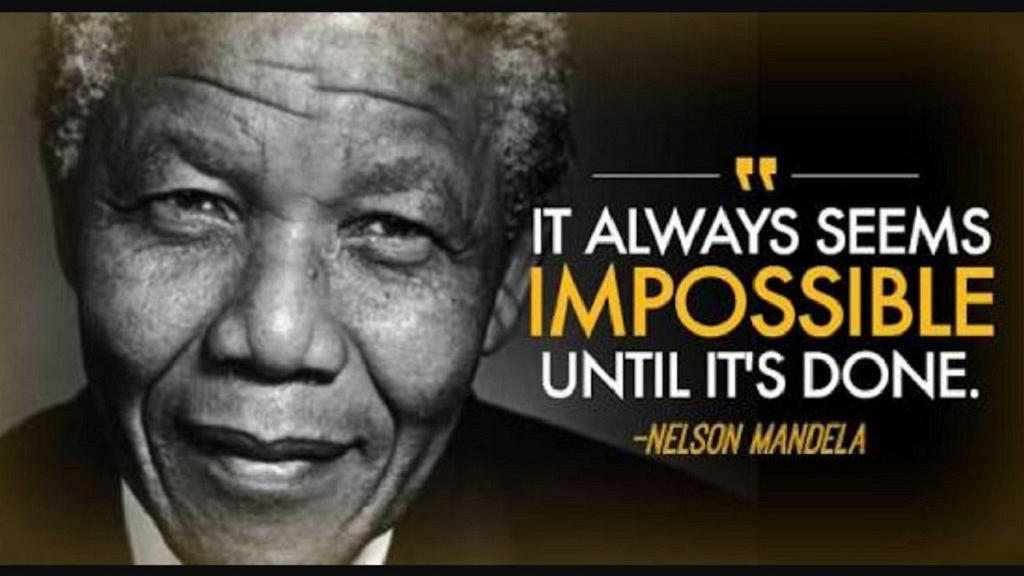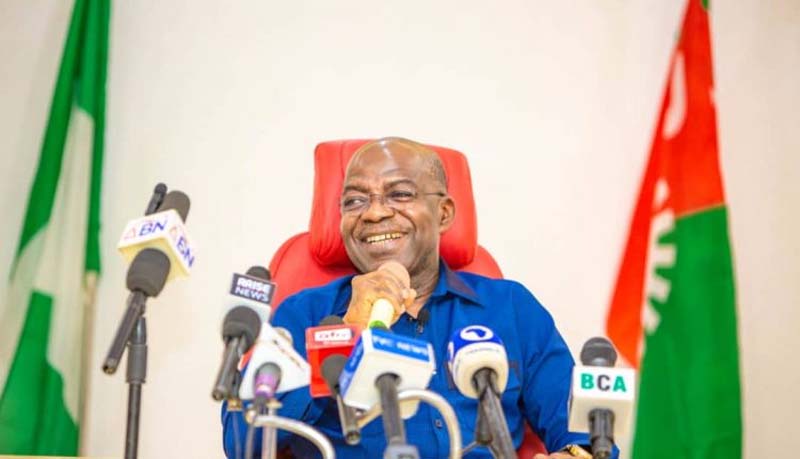“In situations where African political leaders continue to pose a threat to peace and justice for their own people, Mandela remains a shining example of African iconic hero and what did he do differently;
The late Nelson Mandela, former president of South Africa and anti-apartheid activist, has left a legacy of leadership and justice that has remain elusive to many African rulers on purpose or by choice.
The great Mandela has all the right of privilege to lead with vengeance and a sense of entitlement, having spent 27 years in prison for his anti-apartheid activist roles and dedicating his life to guaranteeing freedom and justice for all South Africans irrespective of color and creed, tribe and political affiliations.
The month of July marks the Mandela Legacy remembrance days with dates chosen between 9th, 19 – 20th depending on locations
Mandela had spent 27 years of his healthy adult life in prison, for standing up to the ill-treatment of fellow South Africans by the political administration that had employed the policy of apartheid in a manner similar to the African tribal and ethnic divisionist policies employed by most African rulers of today as seen in the Republic Cameroon and the Ambazonian, The Government of Nigeria led by Muhammadu Buhari and Southern Nigerians.
Mandela is remembered today in honor because he stood up for his people against all forms of divisionist’ tendencies and promoted a policy of reconciliation that teaches Africans rulers to pursue peace and justice for their people and society rather than flexing political muscles that continue to tear the people apart and disrupt constructive progress.
Mandela gained freedom from incarceration in 1990 and engaged into a negotiation with the State President President F. W. de Klerk to end the injustice system of apartheid in South Africa that was brewing so much discontent and deliberate segregation of people in their natural habitat.
Nelson Mandela had all the opportunity to fight back and bring the system down rather he chose to negotiate with the Oppressor and succeeded in bringing peace to a racially divided country and leading the fight for human rights around the world. Africa rulers who always claimed to be creating policies that are not only unpopular but increasing strife, discontent and frustration of their citizenry should be humble to learn from great African heroes as Nelson Mandela.
Although racism still thrive all over the world today, Africa has its own form of racism under the cover of ethnic and tribal chauvinism in most cases involving even state actors at the central government level. These class of African rulers although celebrated by members of their political parties and circle of friends do not consider a legacy worth celebrating in honor as they use state power to divide and disrupt their own society and thwart economic progress.
The World celebrates Mandela in the month of July of every year because he did not only stand up for his people but he championed several drastic changes in education and community awareness.
In politics, he shows a leadership example of leading and mentoring a younger generation of leadership which many African recent rulers have continued to frustrate by gluing themselves to power indefinitely, impoverishing the young populations only to use them for very negative causes.
African rulers should desist from their unabashed attitude of singing and eulogizing Nelson Mandela or any leader in that category if they will not learn a thing or two from his leadership qualities.
More so, it will be honorable if the ordinary Africans themselves begin to disregard and stay away from individuals in leadership positions who have merely used their privileged positions to encourage divisions and ethnic conflicts without introducing any constructive change that will be traced as a legacy whether in their lifetime or while in office.
Even after leaving office, Mandela became an elder statesman and devoted himself to charitable causes across the world establishing the Nelson Mandela Foundation.
“Those who failed to learn their history always remain in perpetual circle of underdevelopment, political experiments and miserable economic system because they deliberately refuse to learn.
In situations where African political leaders continue to pose a threat to peace and justice for their own people, Mandela remains a shining example of African iconic hero and what did he do differently; he demonstrated remarkable leadership qualities, including advocacy for peace and captivating presence that disarmed enemies with his smile of tolerance, high level of forgiveness, positive thinking, ability to see the big picture, focus on goals and missions beyond himself rather than promote one ethnic group or political party against the other. He remained focused on what is good for the ordinary south Africans and the world celebrated him till today even in death.
Mandela understood the importance of education and the position of women in nation building and he made it a national policy to priorize education in government expenditures and promoted the participation of women in politics. For Mandela, education was the “most powerful weapon that could be used to change the world”– not only the lives of individuals, but of whole societies. In the book, ‘Long Walk to Freedom, he noted that for him, education was more than “the great engine of personal development”. Rather, it was through education that “the daughter of a peasant can become a doctor, that the son of a mineworker can become the head of the mine, that a child of farmworkers can become the president of a great nation”
During Apartheid, black South Africans were prevented from studying science and technology and barred from other professional careers But that changed when Mandela was elected president.

Mandela was the leading figure in the fight against South Africa’s racist apartheid system that introduced equality and justice between all South Africans. This is what African rulers should emulate from African iconic Heroes like Nelson Mandela
Those who failed to learn their history always remain in perpetual circle of underdevelopment, political experiments and miserable economic system because they deliberately refuse to learn.
This is one of the reasons I felt that the African ruler should be an object of debate, his character, knowledge and wisdom in relationship building and the economy.
When a man lacks these basic attributes of human development, he cannot be a good leader in the 21st century because the world is revolving and people with archaic and vengeful characters that only lead to further crisis between the people will always escalate the situation they met at any point in time. All their talk and seminars on peace building are mere deception to hide their chauvinism.
Mandela did not only lead South Africa into an era of peace and justice, he extended that Pan Africanist in him by helping to broker peace in the Democratic Republic of the Congo and Burundi.
When the World Cup came to South Africa in 2010, Mandela attended the closing ceremony as the guest of honor, and his appearance, despite his poor health, made one of world’s greatest events even more special.
That’s because the hero who emerged from a tiny prison cell to help topple Apartheid, deliver rights to millions of oppressed South Africans, and heal a wounded nation had long before earned his status as an international icon of peace and justice.






